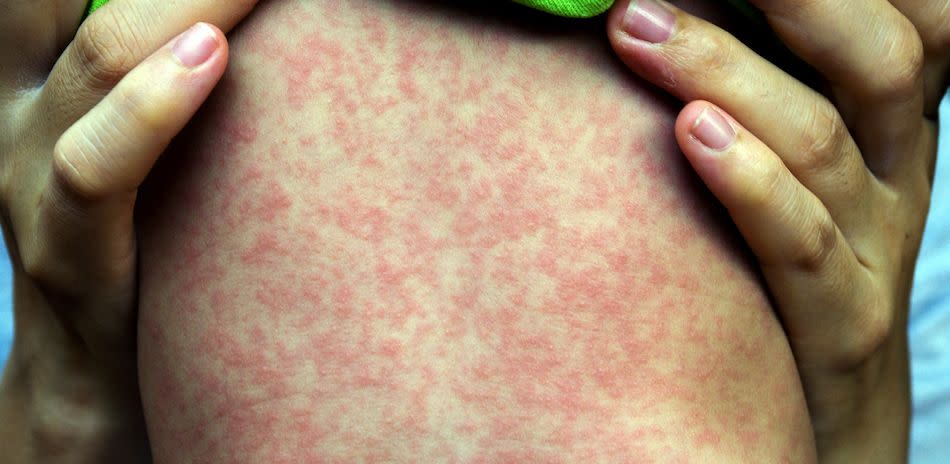Anti-vaxxers ‘are behind huge measles outbreak in Europe’ which has killed 37

Parents who refuse to vaccinate their children in the wrong belief that vaccines are linked to autism are the main cause of a measles outbreak infecting thousands in Europe, experts have said.
In the first six months of 2018, 41,000 people were infected, with 37 people dying from the easily preventable disease.
The main factor leading to the outbreaks are parents refusing to vaccinate children – leading to vaccination levels as low as 70% in some areas.
To protect against outbreaks, 95% of children need to be vaccinated.
Anca Paduraru of the European Commission in Brussels said, ‘It’s the main factor leading to the outbreaks.
READ MORE FROM YAHOO NEWS UK:
Couple in car that towed caravan the wrong way down a busy motorway are named
Student died after ‘taking part in bar crawl initiation involving 100 triple vodkas and pig’s head’
Man admits murdering midwife Samantha Eastwood after affair
Proposed EU ban on daylight saving time could cause clock chaos in no-deal Brexit, warn peers
Theresa May insists Brexit is 95% done as rebel MPs plot revolt
‘It’s unacceptable to have in the 21st century diseases that should have been and could have been eradicated.’
Vaccinated people can catch diseases such as measles, but vaccination dramatically lowers the risk.
Every year, 1.5 million children around the world die from diseases which can be prevented with vaccines – and so-called ‘anti-vaxxers’ contribute to this.
‘Anti-vaxxers’ refuse to immunise children, in the (mistaken) belief that vaccines cause conditions such as autism.
Previous research in America suggested that a rise in measles cases may be due to ‘anti-vaxxers’.
Researchers analysed 1,789 cases of measles in America between 2001 and 2015 – and found that 70% of those who contracted the illness were unvaccinated.
The number of measles cases has grown from 0.28 cases per million people in 2001 to 0.56 cases per million in 2015, the researchers say.



